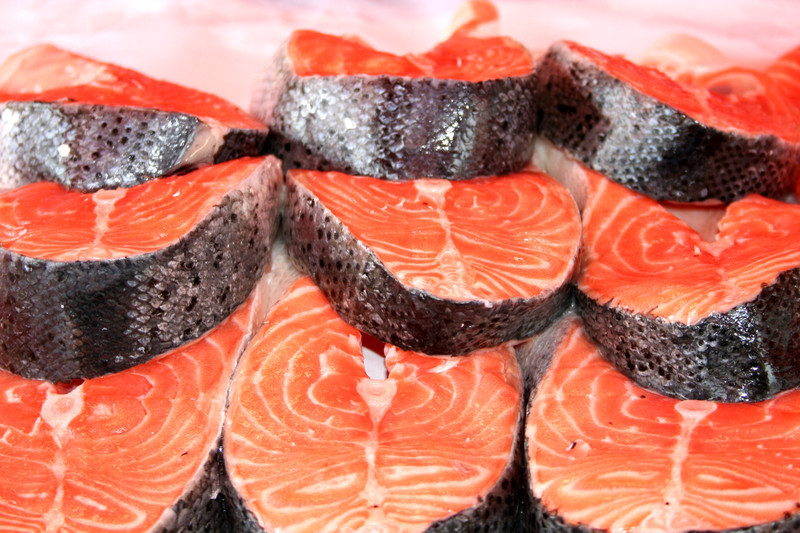
Mastitis: What to do when your breasts are painfully inflamed

How — and why — to fit more fiber and fermented food into your meals

UTI in older women: Why postmenopausal women are susceptible to urinary tract infection, and what to do about it

Can a routine vaccine prevent dementia?

Some adults may need a measles booster shot. Who should get one and why?

Less butter, more plant oils, longer life?

Healthier planet, healthier people

Counting steps is good — is combining steps and heart rate better?

Appendix pain: Could it be appendicitis?

Can saw palmetto treat an enlarged prostate?
Nutrition Archive
Articles
Can you, should you, have medically tailored food delivered to your home?
Food promotes wellness when it follows your unique dietary needs.
Image: © Highwaystarz-Photography/Thinkstock
When you're coping with chronic illness or recovering from a hospital stay, you're probably not giving much thought to what's for dinner. Your focus instead may be on your doctor appointments or your medication regimen. But the food on your plate plays a crucial role in ensuring better health. You may need to meet a certain calorie intake or observe dietary restrictions (low salt or low potassium, for instance).
"In many cases, the diet part of that treatment plan is as important or more important than the medication you're taking," says Dr. Eric Rimm, a professor of epidemiology and nutrition at the Harvard T.H. Chan School of Public Health.
Is chocolate heart-healthy?
Ask the doctor
Q. I keep hearing that chocolate is good for heart health. Is it too good to be true?
A. It is not too good to be true — but it also is complicated. We have previously discussed studies indicating that foods derived from the cocoa bean — in particular, dark chocolate, which has a higher cocoa content than milk chocolate — are heart-healthy. Specifically, people who eat more chocolate have lower rates of heart attacks, heart failure, and even death from heart disease.
Think twice before going gluten-free
News briefs
Image: © Elenathewise/Thinkstock
Unless you have celiac disease, banning gluten from your diet won't boost your heart health—and may actually hurt it, suggests an observational study published May 2, 2017, in The BMJ. Gluten is a protein in wheat, barley, and rye. In people with celiac disease, eating gluten triggers the body to attack the small intestine, causing inflammation and leading to malnutrition and gastrointestinal distress. The inflammation, in turn, can increase heart disease risk. In these people, eliminating gluten stops the attack on the small intestine, reduces inflammation, and helps reduce heart disease risk.
A Harvard research team wondered whether people without celiac disease might also lower their heart disease risk by eliminating gluten from their diets. In a study of more than 110,000 healthy men and women followed for about 25 years, the researchers did not find a clear difference in the number of heart attacks that occurred among people who ate the most gluten each day, compared with people who ate the least. However, in people who avoided gluten by avoiding whole grains — which contain valuable nutrients — the risk of heart disease rose. So, if you're among the great majority of people who don't have celiac disease, avoiding gluten won't reduce your risk of heart disease, and it might increase the risk if it means you cut back on whole grains.
What can precision nutrition offer you?
A diet tailored to your DNA may be in the future, but you can personalize your eating plan now in several ways.
The one-size-fits-all approach hasn't been very successful, either in clothing or in medicine, because most of us are not the "average" woman. That's one reason researchers are now investigating whether customizing peoples' diets according to their DNA — an approach known as precision nutrition — can improve their health.
As the cost of sequencing an individual's genome (a readout of all a person's DNA) has continued to fall, incorporating genetic information into nutrition advice has become increasingly feasible, says Dr. Frank Hu, chairman of the Department of Nutrition at Harvard's T.H. Chan School of Public Health. The ready availability of human genetic information has given rise to a new scientific field, nutrigenomics — the study of the influence of people's genes on how they metabolize nutrients. Nutrigenomics has opened the door to precision nutrition — the creation of individualized eating plans based on a person's genome.
Does diet soda raise stroke risk?
Some studies suggest a possible link. But don't switch to regular sugary sodas — try infused water instead.
For diet soda fans, recent news reports linking these popular drinks to a higher risk of stroke may have been alarming. A closer look at the study behind the headlines suggests there's no need to panic. But beverages naturally low in calories are probably a healthier option than artificially sweetened drinks.
For starters, observational studies like this one (see "Diet soda and the brain: The latest findings") cannot prove cause and effect. Also, only 97 people had strokes during the 10-year follow-up, which means only two or three of those strokes could possibly be attributed to drinking diet soda, says Dr. Kathryn Rexrode, an associate professor of medicine at Harvard-affiliated Brigham and Women's Hospital who co-authored an earlier, larger study looking at soda consumption and stroke risk.
Six healthy snacking strategies
How can you keep snacking from derailing your healthy eating program, not to mention weight control? Try these tips.
Don't skip meals. Skipping meals may seem like a good way to cut calories, but in fact this just makes you so hungry later in the day that you're vulnerable to devouring mega-portions of snack food, in order to supply your body with easily digested sugars.
What to do about mercury in fish
Fish is an excellent source of protein, and its healthy oils protect against cardiovascular disease. Because a diet rich in seafood protects the heart and aids neurological development, fish remains an important component of a healthy diet.
However, nearly all fish and shellfish contain traces of mercury, a toxic metal, and some seafood contains other contaminants known as persistent organic pollutants (POPs). As small fish are eaten by larger fish up the food chain, concentrations of mercury and POPs increase, so that large, predatory deep-ocean fish tend to contain the highest levels. That makes it best to avoid eating large fish, such as shark, swordfish, tilefish, and king mackerel. As long as you avoid these higher sources of mercury, the benefits of eating fish far outweigh the risks of mercury in fish.

Mastitis: What to do when your breasts are painfully inflamed

How — and why — to fit more fiber and fermented food into your meals

UTI in older women: Why postmenopausal women are susceptible to urinary tract infection, and what to do about it

Can a routine vaccine prevent dementia?

Some adults may need a measles booster shot. Who should get one and why?

Less butter, more plant oils, longer life?

Healthier planet, healthier people

Counting steps is good — is combining steps and heart rate better?

Appendix pain: Could it be appendicitis?

Can saw palmetto treat an enlarged prostate?
Free Healthbeat Signup
Get the latest in health news delivered to your inbox!
Sign Up











